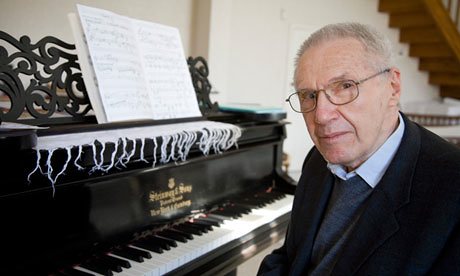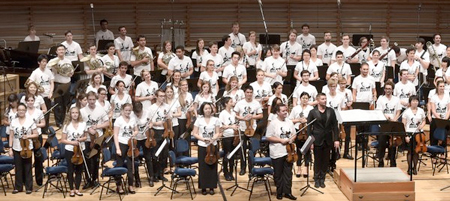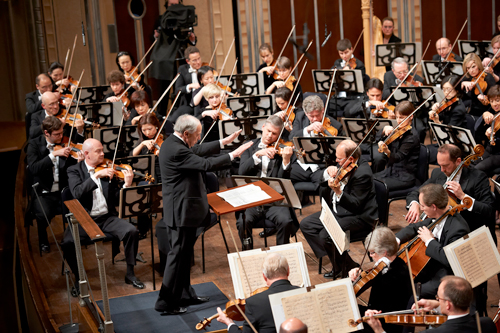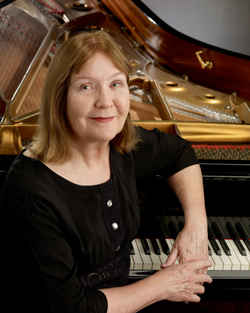by Daniel Hathaway

Kurtág (pictured above in 2007), who worked with Boulez and the Ensemble InterContemporain in Paris from 1999-2001, wrote Petite musique solennelle to honor Boulez on his 90th birthday, a landmark that was also observed by The Cleveland Orchestra in a special concert in January of 2015. (Boulez died almost exactly one year later.)
In an interview for a preview of that event on ClevelandClassical.com, TCO principal keyboardist Joela Jones said, “To me it’s amazing that somebody who was so great, so brilliant, and so gifted, could also be so humble and modest. He just made you feel comfortable, like you were his equal, which of course you were not. And, if you had enough intelligence you knew that.”
Jones’s fond impressions of Boulez were shared by musicians across the globe, but were perhaps nowhere so warmly celebrated as at the 2015 Lucerne Festival. That festival devoted an entire day of eight concerts to Boulez, who had founded the Lucerne Festival Academy in 2004 to train young musicians in the performance of contemporary music. “A Day for Pierre Boulez” included the first performance of Kurtág’s Petite musique solennelle by the Academy Orchestra, led by Matthias Pintscher. The musicians performed wearing Pierre Boulez t-shirts. Sadly, Pierre Boulez was unable to attend due to illness.

Kurtág’s piece calls for a large orchestra of 5 flutes (including piccolo, alto, and bass flutes), 2 oboes and English horn, 2 clarinets and bass clarinet, 2 bassoons and contrabassoon, 2 horns, 2 trumpets, 2 trombones, tuba, strings, harp, celesta, pianino (an upright piano with mute pedal), cimbalom (Hungarian hammered dulcimer), and a large percussion section that includes vibraphone, bells, steel drum, timpani, crotales, piatti (cymbals), gong, and bass drum, plus Bayan (a chromatic button accordion).
Pierre Boulez conducted The Cleveland Orchestra over a span of nearly fifty years. Since making his debut with the Orchestra in 1965, he led them in more than 220 concerts. He was appointed the Orchestra’s first Principal Guest Conductor in 1969 and served as Musical Advisor for two seasons beginning shortly after George Szell’s death in 1970. Boulez made several recordings with the Orchestra, and won five Grammy Awards. In 2014 he received the Orchestra’s Distinguished Service Award.

“On one of the occasions that Mr. Boulez returned to conduct, Petrushka was on the program. As you know, it is common for the conductor to give the pianist a solo bow at the end. After the Thursday night performance he only asked the entire orchestra to stand, and orchestra members were looking back wondering why he didn’t ask me to take a bow. I figured he had a lot on his mind and he just forgot. I didn’t care and I wasn’t devastated.

Photos of Pierre Boulez and Joela Jones by Roger Mastroianni.
Published on ClevelandClassical.com March 22, 2016.
Click here for a printable copy of this article


